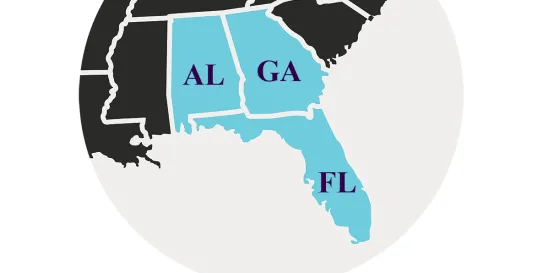The Eleventh Circuit upheld an arbitral award last month despite the arbitrators’ failure to make certain disclosures regarding potential sources of bias. The litigation involved a dispute between the Panama Canal Authority, the government agency responsible for the operation and management of the Panama Canal, and Grupo Unidos por el Canal, S.A., the contractor hired to construct the Panama Canal expansion. Complications with the project caused progress to be “severely delayed and disrupted,” resulting in liability disputes between the parties.
Grupo Unidos’s contract with Panama required that any disputes be resolved through arbitration under the Rules of Arbitration of the International Chamber of Commerce (“ICC Rules”). Following a five-year arbitration hearing on the merits, the panel of three arbitrators ordered Grupo Unidos to pay nearly $250 million in damages to Panama. After Grupo Unidos received the adverse awards, it requested additional disclosures from each of the arbitrators of any facts that could give rise to reasonable doubts as to their impartiality. In response, the arbitrators disclosed several other, unrelated matters where they had worked with each other or with Panama’s counsel.
In light of the disclosures, Grupo Unidos filed an application with the ICA to remove the arbitrators, arguing that all three members of the Tribunal withheld important connections that were “highly problematic” and brought their neutrality into question. Although the ICA acknowledged the arbitrators failed to make certain disclosures, it found there was no conflict of interest warranting disqualification. Grupo Unidos subsequently moved to vacate the award in the Southern District of Florida, asserting the arbitrators’ nondisclosures implicated three defenses to enforcement of the award under the New York Convention (codified in Chapter 2 of the Federal Arbitration Act (“FAA”)). The District Court upheld the arbitration award after finding that Grupo Unidos’s arguments “depend[ed] on multiple speculative assumptions, each assuming the worst in [the arbitrators’ character].”
The Eleventh Circuit affirmed the District Court’s order after finding Grupo Unidos “presented nothing that comes near the high threshold required for vacatur.” In its appeal, the contractor argued the arbitration award fell under the “evident partiality” exception of the FAA, which allows an award to be vacated if the arbitrator knows of, but fails to disclose, information which would lead a reasonable person to believe that a potential conflict exists. According to the Eleventh Circuit, however, the evident partiality exception only applies if the alleged partiality is “direct, definite and capable of demonstration rather than remote, uncertain and speculative.” While the court agreed arbitrators should err on the side of greater, not lesser, disclosure, it refused to vacate the award simply because the arbitrators worked with each other and with related parties elsewhere. Grupo Unidos also made claims under the New York Convention, which provides a defense to an arbitral award if the recognition or enforcement of the award would be contrary to public policy. However, that defense applies only when enforcement of a foreign arbitration award would “violate the forum state’s most basic notions of morality and justice.” The Eleventh Circuit held it did not. The court also found that the arbitration proceedings were in accord with ICC Rules and procedurally fair.
This case serves as a reminder that “[i]f there is one bedrock rule in the law of arbitration, it is that a federal court can vacate an arbitral award only in exceptional circumstances,” a principle, the court observed, applies with even greater force to an award rendered in an international arbitration.


 />i
/>i
